Seventeen year old Suraj Devi belongs to the nomadic Hindu Bagri community that has traditionally moved from one city and town to another in search of livelihood. However, having realised that in doing so their children will remain unlettered like their predecessors, many Bagri families have begun to settle down in one place.
In the suburbs of Rohri town where they have settled, several Bagri families have begun to send their children to the Riverside Community High School, run by Riverside Development Organisation (RDO) for slum dwellers, who cannot otherwise afford to send their children to private schools.
This has provided Bagri children with an opportunity to get quality education as well as to avail the free pick and drop facility that RDO offers to facilitate the community and encourage them to send their kids to school. Suraj Devi and her five siblings also got admission in the Riverside Community High School in 2012, but only Devi managed to complete her matriculation. For several reasons, none of the other siblings could were able to do the same.
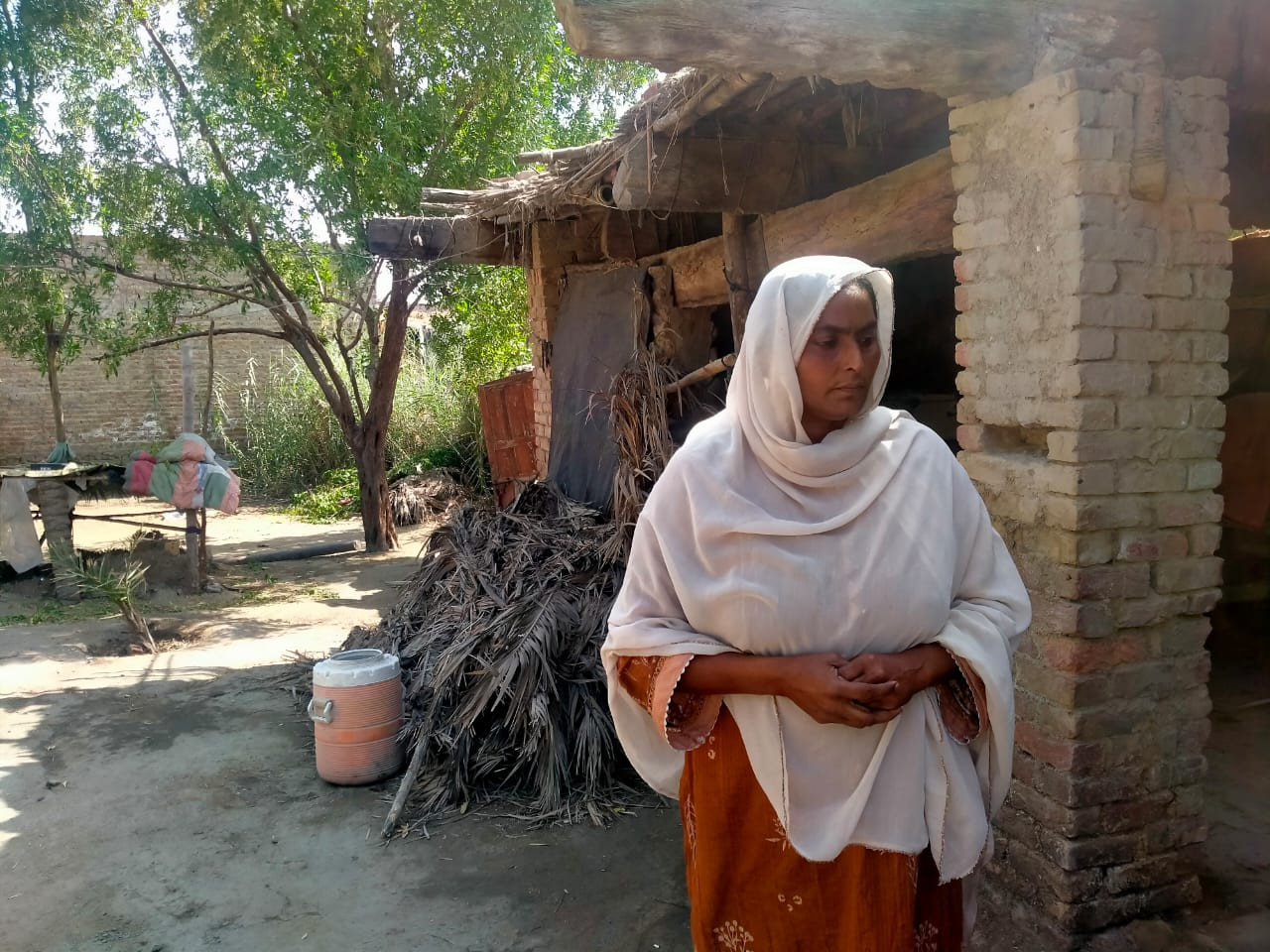
Inside her huge katcha house not far from the Riverside Community High School, Devi who is presently studying at a science college in Rohri town spoke about two of her elder sisters Muskan and Diya Bharti’s disruption in their education. “They had completed their seventh and eighth grades respectively, before they were married off,” shares Devi. “Now Muskan has a son and Diya has two daughters. Our youngest brother Sunil Kumar is in class one, while my elder brother left school after grade seven to work on the agricultural land of a local landlord.”
Abandoning his first wife and children, Devi’s father has remarried and lives with his new wife in Pano Aqil. “Initially, it was quite challenging for my mother to continue our education, but she didn’t give up,” says Devi. “She worked hard, started selling embroidered clothes and plastic ware to earn enough to let us learn and not go to work to help support the family as many kids do in our community. I am doing my pre-medical now and want to become a doctor to set an example, not just for my community, but for other girls too.”
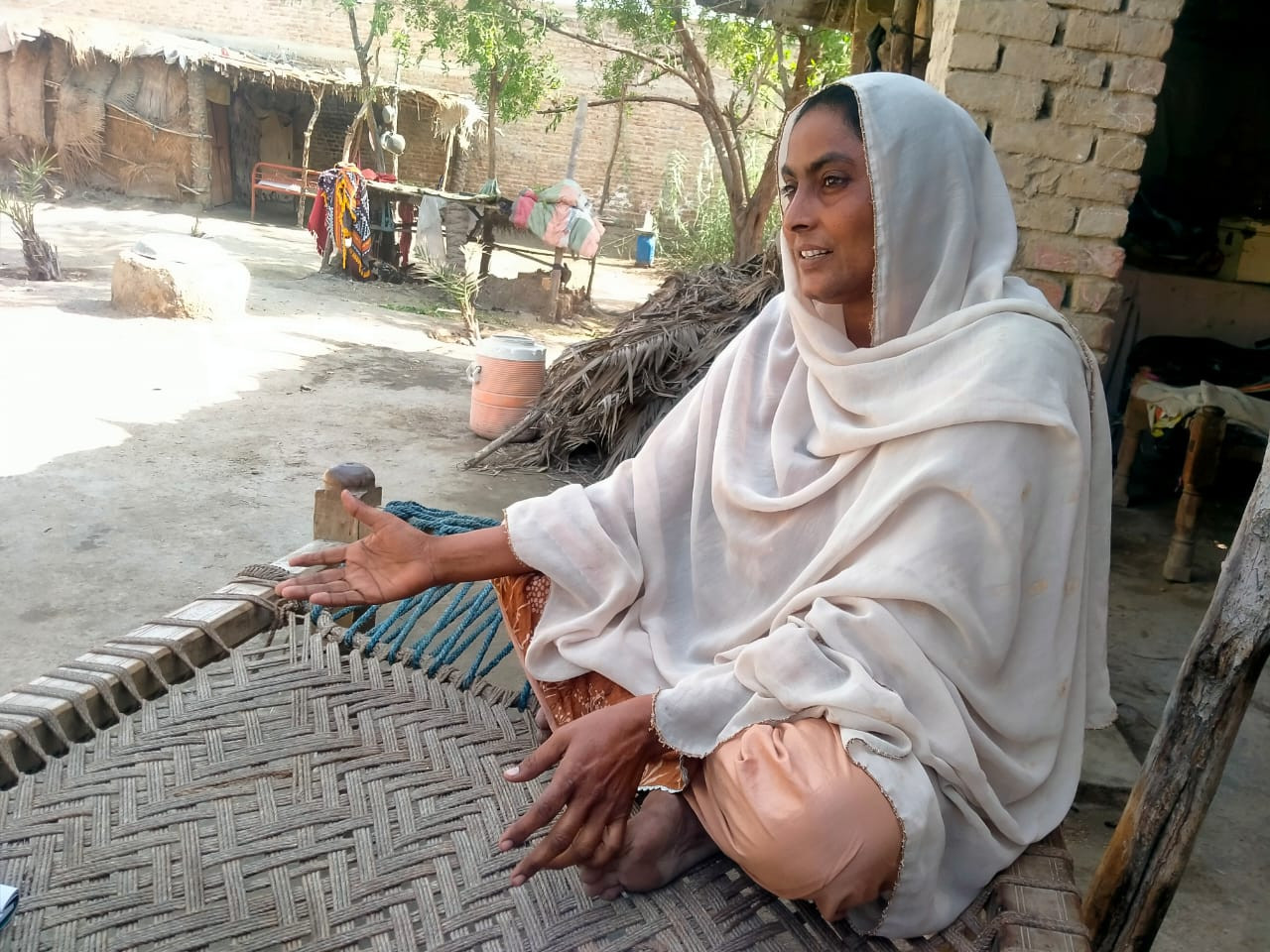
Generally, it is seen that the women of the Bagri community are known for their loud and harsh way of speaking, but Devi, on the contrary, speaks gently. “Education has changed our social behaviour and demeanour,” she says with a shy smile. “Otherwise, Bagri women speak louder than the men, most probably to express their power to men, who seem to think they are the boss and are dominating!”
Recalling her earlier days in school, she said that she too spoke harshly like her mother. “But as I continued with my education, my manner of speech became softer and refined like other girls in school,” she shares.
Devi’s elder sister Muskan, who was forced by their parents to quit school and marry at an early age regrets not being able to complete her matriculation. “I protested and cried a lot when my father stop sending me to school, but I was not able to do anything and was married off,” says Muskan, her face half covered with her dupatta. “Now I have a two year old boy and I am in my fourth month of pregnancy.”
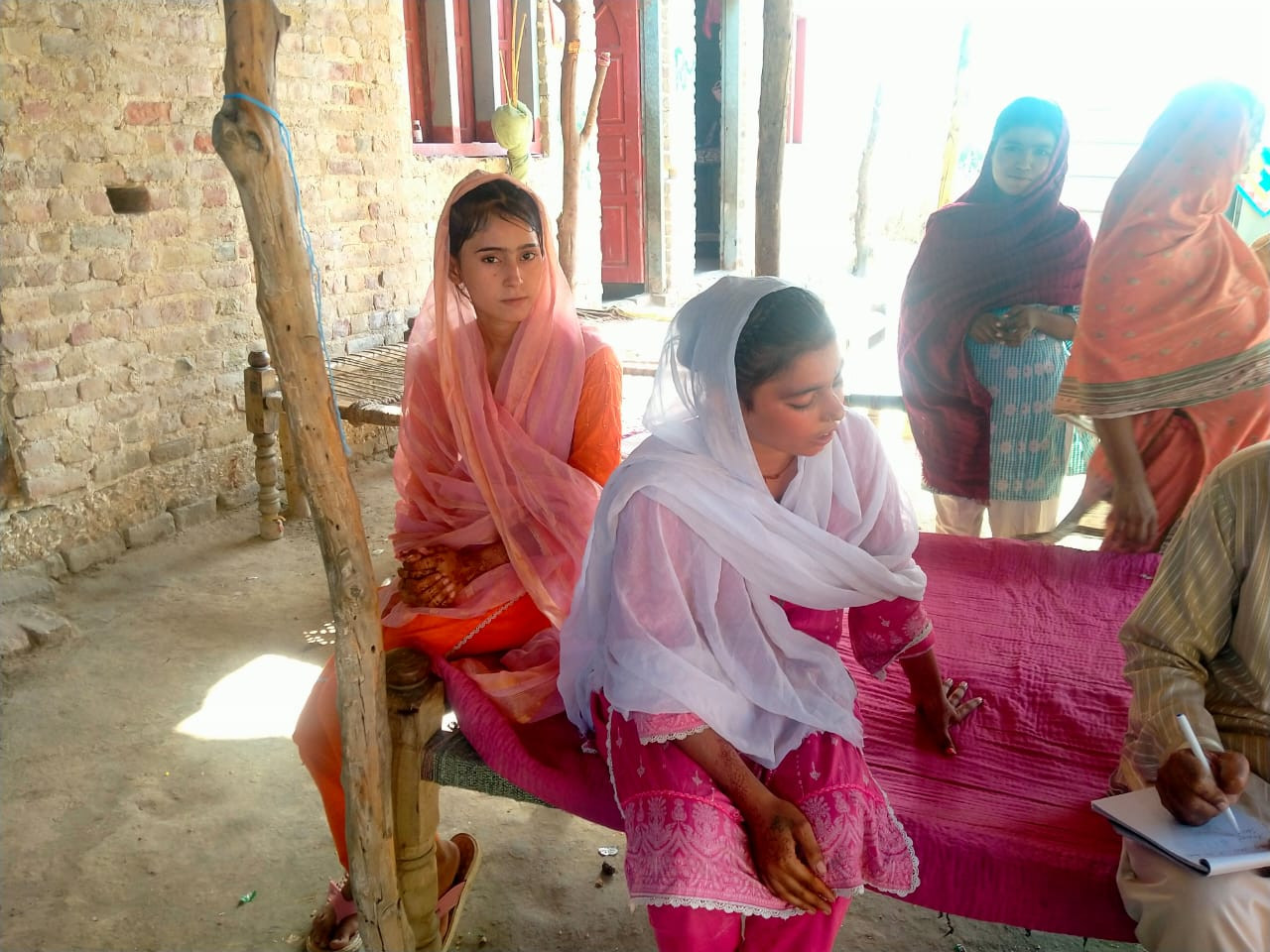
Disheartened and settling into a new life, Muskan couldn’t even compete her matriculation privately. Bharti’s story is also similar to Muskan’s as she too had to drop school right after completing class VIII.
“I am not going to marry until I become a doctor,” says Suraj Devi. “I don’t know whether I am right or wrong by claiming that I will be the first girl of Bagri community to become a doctor but I do hope that it sets a benchmark for hundreds of other girls belonging to marginal communities such as low-caste Hindus especially our community. They must learn that acquiring education is the only way to bring a positive change in their lives.”
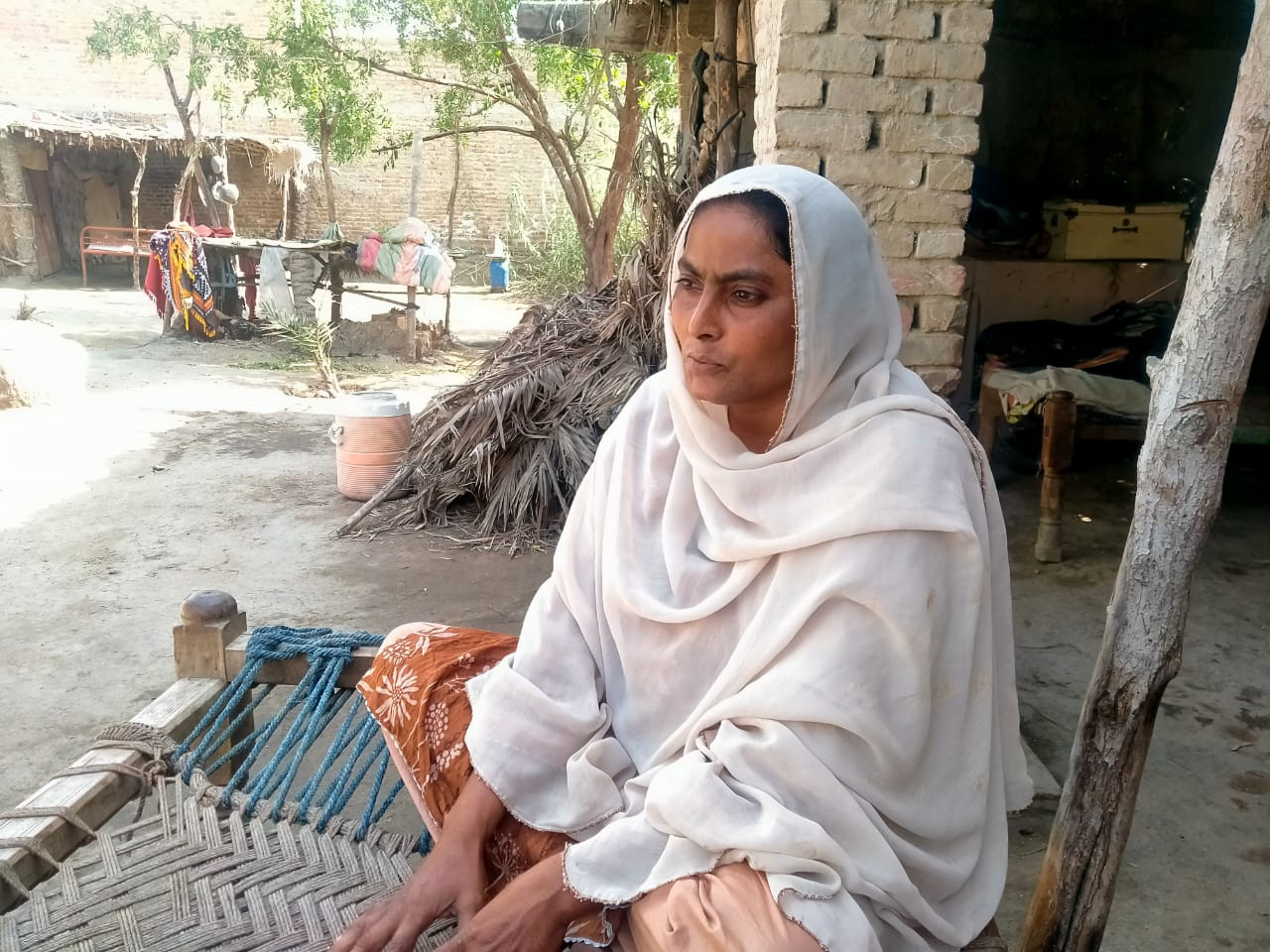
“Since the birth of RDO back in 2008, it was my dream to do something for the uplift of the marginalised communities living on the bank of Indus near Bunder Road, Sukkur,” says Munawar Gill, whose goal is to educate slum dwellers to bring them at par with the mainstream community that has the resources to educate their children in private schools. “Presently, over 600 students from slums and small villages study in our school, without any discrimination of religion, caste and colour. Besides getting free and quality education for their children, they also avail the free transport we provide to and back from school.”
The organisation also holds free medical camps from time to time to carry out check-ups and provide basic medicine to children. “This is not all, we also organise eye-screening camps twice a year in the school, where children are given free medicine for eye ailments and prescription glasses, if needed,” Gill says. “Extra-curricular activities on different national and international days are also held to provide healthy recreational activities for these underprivileged children.”
Another extraordinary woman of the Bhagra community, Meeran Mauj Mastani, is widely respected equally by the Hindu and Muslim community living in village Laiq Bhutto in Achi Kubiyoon Rohri. “I have never been to school, neither my parents had any schooling, but I am able to read, write and understand English, Urdu, Sindhi, Gurmukhi [Hindi], and can fluently speak English, Urdu, Sindhi, Punjabi and Saraiki,” she says.
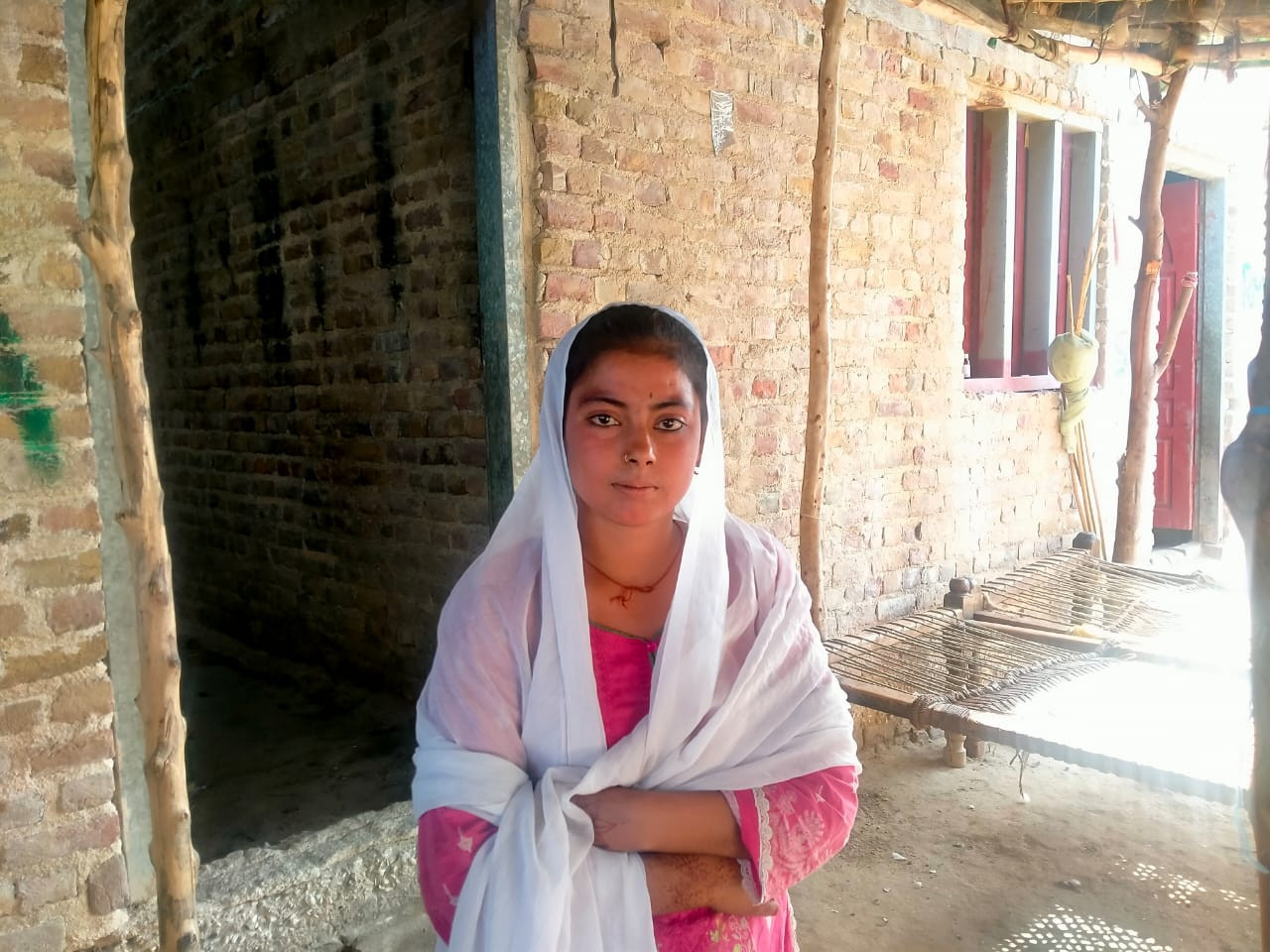 Mastani is against idolatory. “There is one God and one can call upon Him by any name such as khuda, bhagwan, Ishwar or many more. “I have always been drawn to Sufi-ism and my devotion is so strong that I have never married and will never marry,” claims the 48-year-old Mastani, also known as Leela.
Mastani is against idolatory. “There is one God and one can call upon Him by any name such as khuda, bhagwan, Ishwar or many more. “I have always been drawn to Sufi-ism and my devotion is so strong that I have never married and will never marry,” claims the 48-year-old Mastani, also known as Leela.
She lives in a huge katcha house, along with her two uncles and their families. Born in Sangi town near Pano Aqil in 1976, her parents later moved to Karachi, where her father worked in the wholesale fruit and vegetable market for 15 years, after which he returned back to Sukkur and started living in a hut on the bank of Nara Canal.
Understanding and acknowledging her unique interest in religion, her father sent her to Baba Roshan Lal, a dargah [shrine] in Pano Aqil, where she lived for around 12 years, before returning to her present home.
“During twelve years of my stay at Baba Roshan Lal’s dargah, I mastered the Gurmukhi language, which paved my way to learn other languages,” she says adding that during the time she spent there, she would shave her head like Baba as an act of submission to God, and learnt about Sufi-ism, which entirely changed her perspective of life.
Mastani’s door is always open for anyone seeking her help. In the large open space in her house, she sows different grains and vegetables, which she distributes among her relatives and people in the community. “I have sowed paddy, which is ready to harvest in a day or two” she says, proudly pointing to her rice crop.”
While most of the people in the area have harvested their paddy crop, Mastani has delayed reaping hers. “I will harvest it after the birds have had their share,” she says, waving her hand at the birds pecking on the crop.
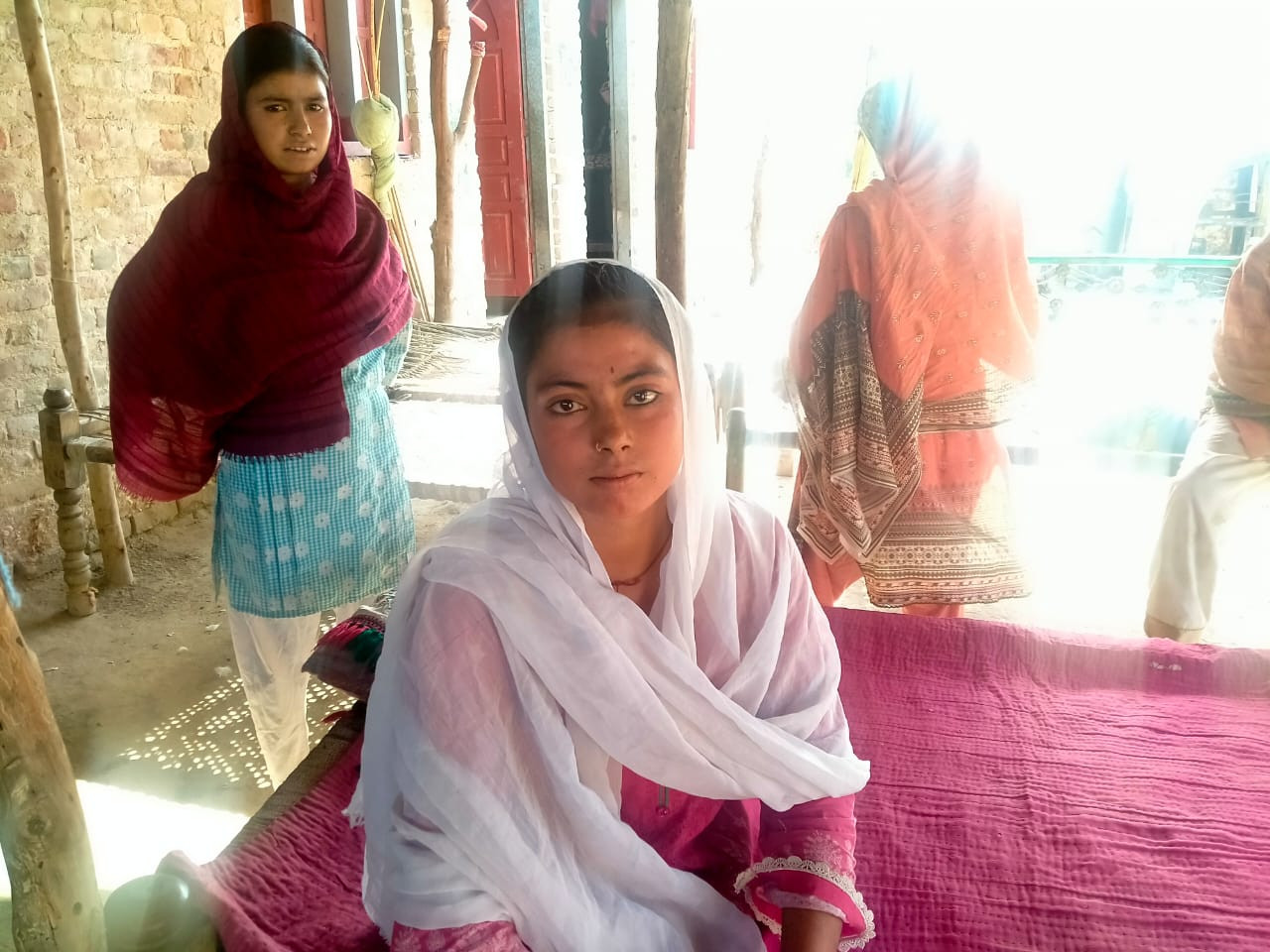
Once her rice harvest is done, she plans to sow different seasonal vegetables including tomatoes, onion, zucchini, eggplant and green chili. Her little source of income comes by singing bhajans with a musical group she has set up. “With the help of God, I also heal people spiritually, as many people come to me with different ailments and problems,” says Mastani. “Apart from this, I sell clothes online and steadily get orders which brings me some extra money.”
While Mastani’s grand-nieces and nephews study at the Riverside Community High School near their home in Achi Kubiyoon, she has more than 20 students coming to her house to learn Gurmukhi.
Suraj Devi's determination to become a doctor and set an example for her community highlights the transformative power of education, while the spiritual wisdom and generosity of Meeran Mastani reminds us that learning comes in many forms. Both women, in their own ways, represent a shift in the Bagri community's narrative — one that challenges deep-rooted societal norms and places education and personal growth at its core. Through their unique journeys, the future of this marginalised group seems brighter than ever.
Sarfaraz Memon is a freelance journalist and contributor based in Sukkur
All facts and information are the responsibility of the writer
